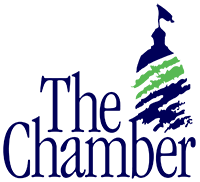Events Upcoming
New Members
New H-1B Restrictions: What HR Leaders Need to Know
President Donald Trump signed a proclamation on Sept. 19, 2025, restricting the entry of certain H-1B visa holders. This was quickly followed by immediate guidance from U.S. Citizenship and Immigration Services (USCIS) and a proposed Department of Homeland Security rule to overhaul the H-1B lottery. Together, these changes — most notably the creation of a $100,000 integrity fee and a move toward wage-based lottery selection — carry far-reaching implications for HR professionals.
Background and Policy Context
The H-1B program has long been viewed as a critical tool for supplementing the U.S. workforce. It addresses "skills gaps, particularly in technology, health care, engineering, higher education, and other sectors where talent shortages persist," said Emily M. Dickens, J.D., chief of staff, head of government affairs, and corporate secretary at SHRM, speaking as part of a SHRM webinar. She cautioned that the administration is walking a fine line. "SHRM believes the administration must strike the right balance protecting American workers, while ensuring employers can access the skills needs to fuel growth and innovation," she said.
Dickens emphasized that SHRM's role includes making sure employer perspectives are heard. "We're not only delivering facts and technical assistance," she said. "We're also advocating for you. Our government affairs team is in direct conversation with the administration to ensure your perspectives, especially those of small and midsize employers, are heard."
Key Proclamation Details
The proclamation significantly reshapes petition requirements. It restricts entry "except for those whose petitions are accompanied or supplemented by a payment of $100,000," said Betsy Lawrence, an attorney with BAL in Tysons, Va.
Lawrence noted that the policy has a built-in expiration of 12 months after the effective date. However, "they're leaving the door open to extend it after 12 months," she noted. According to the White House FAQ, the fee is applied prospectively to petitions filed on or after the effective date.
Areas of Ambiguity
Despite the guidance, there are unresolved gray areas. "Many questions have arisen about what to do in situations where you have an amended petition," said Carmita Alonso, an attorney with Fragomen in New York City. She added that unclear language in the memo has compounded confusion. In addition to amended petitions, there is uncertainty surrounding a change of employer or change of status.
Alonso also highlighted a trickly timing issue. She cited the example of "a new petition filed after Sept. 21 for an H-1B [for an individual] who is in the United States at the time of filing, where presumably under the proclamation language, the $100,000 fee would not attach at that petition filing."
Lottery System Changes
Perhaps the most consequential shift is the proposed move to a wage-based lottery. "Under the proposed system, USCIS estimates that Wage Level 1 beneficiaries will have a 15% chance of being selected," Lawrence explained, "whereas Levels 3 and 4 will go up."
Lawrence added that the weighting system creates real disparities. "Registrations with a wage at or above Wage Level 4, which is the highest wage level, will receive four entries in the lottery," she said. The lower wage levels will receive fewer entries.
Immediate HR Response Strategies
To manage these uncertainties, HR leaders must act quickly. "Obviously, running reports of all the H-1B visa holders in your populations makes a big difference," Alonso said. She also urged organizations to increase communication with employees, including using methods such as town halls. "We are seeing them as effective ways to manage reactions."
Employers should take a close look at their current pipelines, studying where the H-1B jobs are located in their systems. Alonso suggested examining whether any of the jobs could be bumped into a higher category. She warned that coordination will be key. "This is a challenge because it requires significant alignment with compensation, HR leaders, talent acquisition, global mobility, legal and employment departments, ensuring that changes that are made are looked at holistically."
Lawrence echoed the need for agility. "My main word of advice is to just remain flexible and remain nimble and just stay on top of changes as they're coming out," she said. "Keep in close contact with your counsel, who can help put some parameters and frameworks and guidelines in this space as things evolve."
Given the uncertainty, exploring other pathways may help. Lawrence encouraged employers to begin thinking about alternative visas, specifically the TN visa. While limited to Canadian and Mexican nationals, this visa "is actually in some cases kind of broader than the H-1B visa, and it is not subject to a cap," she said.
Advocacy and Next Steps
Active engagement is key in the regulatory process. Employers who believe their business will be negatively impacted by this proposal should consider submitting comments, Lawrence recommended. "If you can back up some of your concerns with data, that is going to be extremely helpful."
SHRM, meanwhile, will continue advocating for employers. "SHRM recognizes the government's intent to protect US workers," said Chenai Kirkpatrick, senior director of Government Affairs at SHRM, "but also notes the possible unintended consequences that could harm employers, especially small to medium-sized businesses."
This article is courtesy of Society for Human Resource Management (SHRM)

